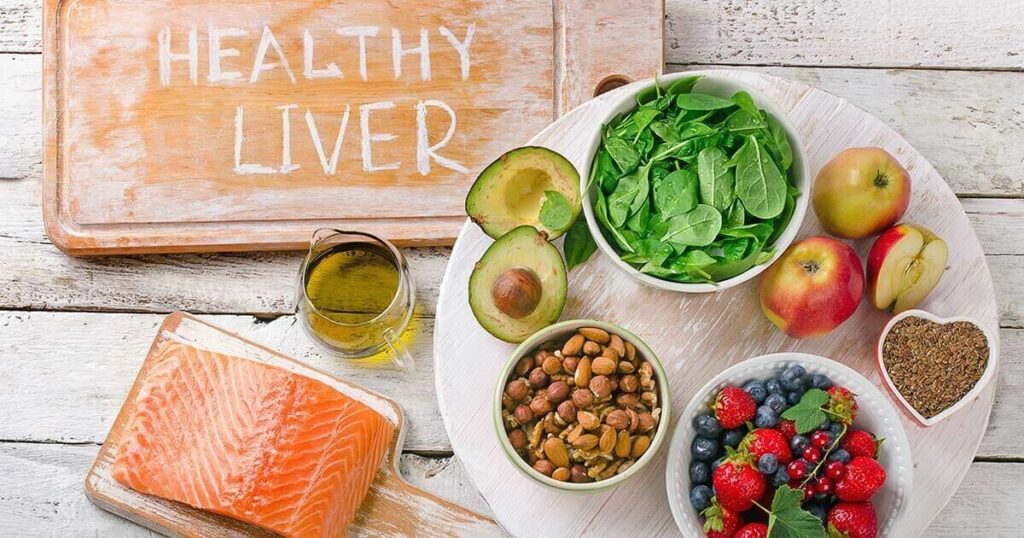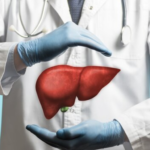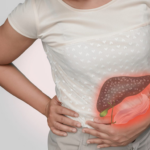
The liver is a crucial organ that processes nutrition, makes bile and removes toxins from the body. However, several things, such as drinking alcohol, being overweight, contracting viruses and being exposed to toxins, can cause liver disease. Fortunately, altering one’s lifestyle and eating well can prevent liver disease and keep the liver healthy. We’ll talk about dietary advice and lifestyle adjustments that can help avoid liver disease in this blog article.
- Avoid Drinking Too Much Alcohol
Alcohol abuse is one of the main contributors to liver damage. The liver must break down the harmful chemical alcohol. Alcohol use in excess can harm liver cells, causing inflammation, scarring and even liver failure. In order to avoid liver damage, alcohol use must be kept to a minimum.
Men should restrict their alcohol intake to no more than two drinks per day, while women should limit their consumption to no more than one drink per day, according to the Dietary Guidelines for Americans. Understanding what defines a drink is also essential. 12 ounces of beer, 5 ounces of wine or 1.5 ounces of spirits make up a normal drink.
- Keep a Healthy Weight
Another risk factor for liver disease is obesity. Fat builds up in the liver in a condition known as non-alcoholic fatty liver disease (NAFLD), which can be brought on by being overweight. This can eventually result in liver cirrhosis and liver cancer by way of inflammation and scarring.
Maintaining a healthy weight is crucial for preventing liver disease. This may be accomplished by eating a balanced diet and exercising frequently. Adults should engage in at least 150 minutes of moderate-intensity aerobic activity each week, according to the Centres for Disease Control and Prevention (CDC).
- Maintain a Healthy Diet
For the liver to remain healthy, a balanced diet is crucial. Liver disease can be avoided by eating a diet high in fruits, vegetables, whole grains, lean meats and healthy fats. On the other side, eating a diet rich in added sweets, processed foods and saturated and trans fats can raise the risk of liver disease.
The following food recommendations can help avoid liver disease:
- Lean sources of protein, such as chicken, fish, beans and lentils, should be a part of your diet.
- Eat lots of fruits, vegetables and healthy grains, with a focus on plant-based meals. The high fiber content of these meals can aid in regulating digestion and preventing constipation.
- Limit your intake of saturated and trans fats by staying away from fried meals, processed meats and full-fat dairy products.
- Choose healthy fats and incorporate them into your diet, such as those in nuts, seeds, avocados and fatty fish.
- Limit your intake of foods and beverages, such as soda, candy and baked goods, that are high in added sugars.
- Drink a lot of water: Maintaining liver health requires staying hydrated.
- Stay away from toxins
- Toxin exposure can harm liver cells and raise the probability of developing liver disease. Use the following advice to prevent exposure to toxins:
- When working with chemicals, exercise caution, wear protective gear and abide by all safety precautions.
- Avoid breathing in fumes: Prevent breathing in fumes from paint, cleaning supplies or other chemicals.
- Choosing organic produce or washing fruits and vegetables thoroughly to remove any pesticides will help you reduce your exposure to pesticides.
- Be careful when taking medications: Only take them as directed and refrain from exceeding the dosage.
Control Chronic Illnesses
Chronic diseases that raise the risk of liver disease include diabetes and high blood pressure. As a result, controlling these circumstances is crucial to avoiding liver disease. The following advice is for treating chronic conditions:
- Manage diabetes: Keep blood sugar levels in check by eating a balanced diet, taking prescribed medicines and getting regular exercise.
- Follow a nutritious diet, cut back on salt, get regular exercise and take your medicines as directed to control high blood pressure.
- Treat viral infections: Speak with your healthcare practitioner about treatment choices if you have viral infections such as hepatitis B or C.
- Avoid sharing needles if you take drugs since doing so increases your chances of contracting hepatitis and other illnesses.
To maintain a healthy liver and prevent liver disease, it is essential to adopt a healthy lifestyle and dietary habits. This includes limiting alcohol consumption, maintaining a healthy weight, eating a balanced diet rich in fruits, vegetables, whole grains, lean proteins and healthy fats, avoiding exposure to toxins, and managing chronic illnesses like diabetes and high blood pressure. By following these tips, individuals can take control of their liver health and reduce their risk of developing liver disease.
Dr Prasad Bhate is a gastroenterologist who specializes in treating liver disease. He emphasizes the importance of adopting a healthy lifestyle and dietary habits to prevent liver disease. He advises his patients to limit alcohol consumption, maintain a healthy weight and eat a balanced diet rich in fruits, vegetables, whole grains, lean proteins and healthy fats. Dr Bhate also stresses the importance of managing chronic illnesses like diabetes and high blood pressure to prevent liver disease. By following these recommendations, individuals can reduce their risk of developing liver disease and maintain a healthy liver.




